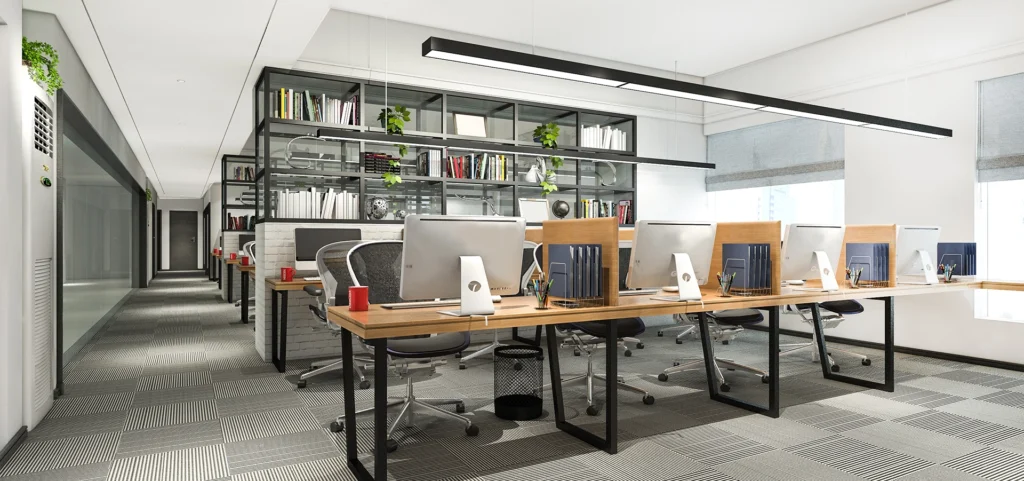The concept of the family office has developed in recent years and has grown far beyond its traditional roots. The modern family office was once a private and centralized organization that handled the affairs of high-net-worth families; it is now a dynamic enterprise influenced by technology, globalization, and, recently, by the advent of hybrid workforces. With organizations redefining their physical presence and operational requirements, family office relocation strategies are evolving in an entirely new way.
Top Reasons Why Hybrid Workforces Are Changing Relocation Needs
In the next part of the blog, we discuss some key factors within the hybrid workforce that shape relocation needs.
- The Rise of Hybrid Workforces
The pandemic led to a faster implementation of hybrid working models in all industries, and family offices are not an exception. In this day and age, teams can be spread across various locations and can work remotely and share an office space as required. The major benefits of this new flexibility include the ability to access a wider talent pool, reduce overhead costs, and provide employees with a better work-life balance. But it also has its share of difficulties, especially when claiming commercial moving services or expanding operations.
- Re-thinking Space and Location
In the past, a family office could easily relocate: one needed to find a suitable address, rent a spacious office, and accommodate everyone there. Family offices now have to rethink their space needs because there are fewer people. Redesigning layouts, optimizing workspaces, and even using shared offices are gaining momentum. Even location choices are changing; being close to big financial hubs is not as significant as access to good infrastructure and other facilities that enable hybrid work.
This trend is not only changing the way offices are designed, but also the strategy and implementation of relocations. Managing the complex logistics, such as the coordination of the moving date of different teams, the deployment of powerful IT infrastructure that will help staff work remotely, and the privacy and safety of sensitive information during the transition, is now a challenge faced by family offices.
Commercial moving services are no longer simply a matter of relocating desks and files, but a question of providing a seamless transition to a workforce that may be based in more than one location.
- Technology as a Driver of Relocation
Digital tools are fundamental to hybrid workforces and, as a result, an integrated move towards technology is an important consideration. The family offices that invest in new places also have to make sure that there is ready access to high-speed internet, a video conferencing platform, and secure cloud storage. The office itself needs to be outfitted to support in-person cooperation as well as distant connectivity. This technological emphasis places new pressure on relocation partners to coordinate complicated installations and to reduce downtime.
- Prioritizing the Human Element
Although logistics and technology play an essential role, the human component is the main focus of any family office relocation. Hybrid teams can experience a sense of being out of place, and relocation can create an additional source of disruption. Good change management and communication are essential to make everyone feel part of the team and updated, no matter the location of work. The timelines, frequent updates, and support of the in-office and remote employees can help ensure the transition is more successful.
Choosing the Right Relocation Partner
These new demands have made the selection of the appropriate relocation partner more critical than ever. Family offices are advised to find professional commercial moving companies that are aware of the specifics of hybrid workplaces. Experienced movers in Ottawa offer more than just transportation. They can assist with secure file management, technology installation, workspace reconfiguration, and post-move support—covering every aspect of the transition.
The Future of Family Office Relocation
In the business world, family offices will need to remain agile and forward-thinking as hybrid work becomes the new norm. Relocation is no longer just a logistical exercise, but a chance to adapt the physical working environment to changing operational requirements. The flexibility, emphasis on technology and cooperation with the best movers in Ottawa help family offices to develop a competitive advantage in moving.
Conclusion
To sum up, the hybrid workforce has revolutionized the relocation strategy adopted in family offices. The ability to think carefully, strong technology, and the ability of the commercial moving services to know the peculiarities of this new era are success factors now. It may be a full-scale relocation or a slight change of space, but the modern family office is most likely to flourish, no matter where work occurs.
Author Bio: Harpal Singh

With more than six years of experience in writing for various fields, I have developed a strong focus on the moving industry. I produce well-structured and compelling content that strengthens brand visibility, builds customer trust, and gives businesses an edge in a competitive environment. I am currently working with Flash AI IT as a senior content writer.




